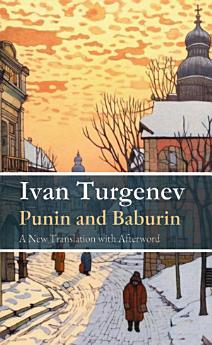Punin and Baburin
About this ebook
In Punin and Baburin, Turgenev explores the ideological divide between two generations, much like in Fathers and Sons, but here the focus is on the friendship between the older Punin and the more revolutionary Baburin. Punin, a romantic and dreamer, represents the old generation, while Baburin is a committed political radical, reflecting the growing movement of nihilism and revolutionary thought in Russia. The two characters' relationship is both a study in contrast and a reflection of the ways in which personal loyalty can transcend ideological divides.
The novella is also a subtle commentary on the Russian intelligentsia's role in societal change. Turgenev’s portrayal of Baburin, in particular, is nuanced—while he sympathizes with Baburin’s ideals, he is also critical of the extremism and moral rigidity that often accompanies such revolutionary fervor. Through this relationship, Turgenev reflects on his own complex relationship with Russian radicalism, recognizing both its potential for change and its inherent dangers. The story serves as a microcosm of the broader social and political upheavals of 19th-century Russia, with the personal relationship between Punin and Baburin symbolizing the country’s larger struggle between tradition and modernity.
This critical reader's edition presents a modern translation of the original manuscript, crafted to help the reader engage directly with Turgenev's works through clean, contemporary language and simplified sentence structures that clarify his complex ideas. Supplementary material enriches the text with autobiographical, historical, and linguistic context, including an afterword on Turgenev’s history, impact, and intellectual legacy highlighting the personal relationships that shaped his philosophy (focusing on Dostoevsky, Tolstoy and Gogol), an index of the philosophical concepts he employs (emphasizing Realism and Nihilism) a comprehensive chronological list of his published writings, a brief biography, and a detailed timeline of his life.










